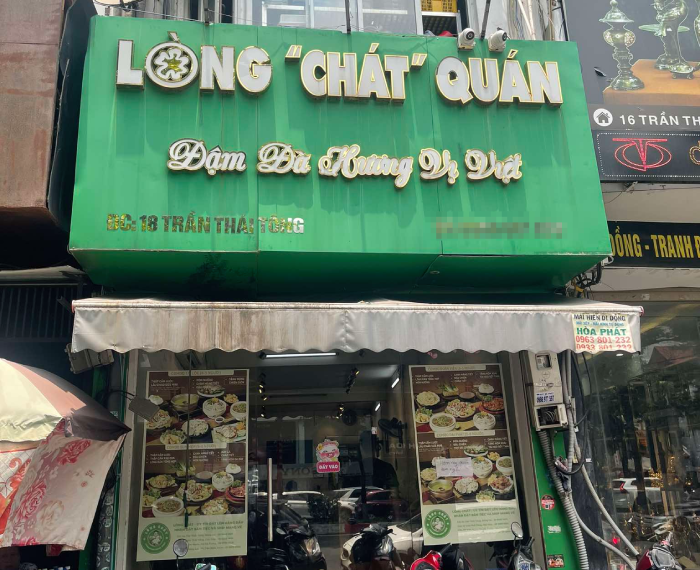A viral claim about a 40-meter-long pig intestine dish has reignited concerns over false advertising in Vietnam, highlighting how misrepresentation on social media is becoming increasingly common - and far from harmless.

As previously reported by VietNamNet, on May 8, an interagency food safety inspection team in Cau Giay District, Hanoi, conducted a surprise check at the eatery “Long Chat,” located at 18 Tran Thai Tong Street, known for its signature dish "long xe dieu" (pig intestine).
Owner Ngo Quyen The admitted to posting a video on Facebook and TikTok in 2024 claiming the restaurant's dish featured a 40-meter intestine (roughly 27 strides in length). He has since confessed to exaggerating the claim and issued a public apology.
In addition to the false advertisement, the owner failed to provide documentation proving the origin of the featured meat product.
Authorities have recently uncovered multiple cases of businesses blatantly violating food safety regulations, selling counterfeit or substandard products, and ignoring hygiene standards.
What’s more troubling is the role social media influencers play in promoting these questionable businesses through exaggerated or misleading endorsements, sparking public outrage.
According to Dr. Dang Van Cuong, a lawyer, the case involving the TikToker who dubbed himself the “king of pig intestines” and showcased the exaggerated dish illustrates the ongoing issue of deceptive advertising and inflated product claims - echoing past scandals involving fake vegetable candy and counterfeit milk.
He stressed that influencers who prioritize profits over ethics by spreading false information to mislead consumers, at the expense of public health, must face legal consequences.
The Long Chat business has yet to verify the origin of its products. Meanwhile, food safety authorities are testing the products currently on sale to assess hygiene compliance. Depending on the results, penalties will be applied according to the law.
Authorities will also investigate the advertising of food products on digital platforms and review invoices, certifications, and documentation related to the business’s products and services. If violations are found, they will be sanctioned accordingly.
Under Decree No. 38/2021/ND-CP, those engaging in false or misleading advertising may face fines of up to USD 2,400. Goods without clear origin, proper documentation, or safety standards will be confiscated and destroyed.
Moreover, if products are found to contain hazardous substances or fail hygiene standards, businesses could face fines of up to USD 8,000.
Previously, the Authority of Broadcasting and Electronic Information (under the Ministry of Culture, Sports, and Tourism) issued two administrative penalty decisions: No. 148/QD-XPHC and No. 149/QD-XPHC. These were against TV host Tran Quang Minh and MC Van Hugo (Nguyen Thanh Van), who were fined USD 1,500 and USD 2,800 respectively for violations in advertising practices. Both were also required to delete the misleading advertisements and issue corrections.
T. Nhung